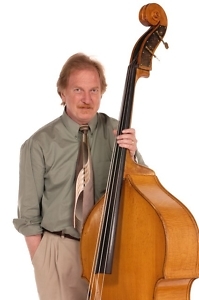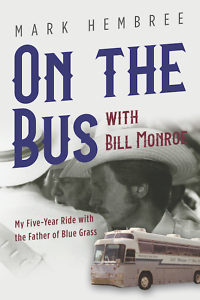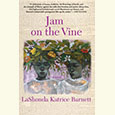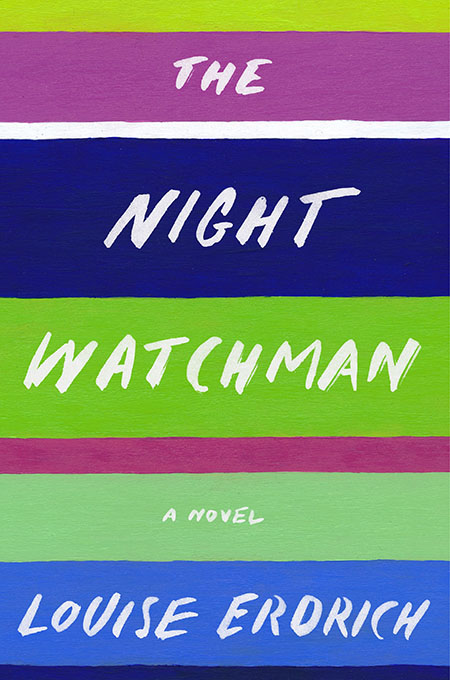Father Knows Best
A Blue Grass Boy’s memoir of life on the road with the great Bill Monroe
Bassist Mark Hembree’s On the Bus with Bill Monroe gives us the legendary Father of Blue Grass as we’ve come to know him: intimidating, sometimes imperious, and nigh on impossible to really know. The music, of course, was matchless. The music was thrilling — wild yet precise. But the man himself? Monroe was, well, complex. He was demanding, exacting, and exceedingly tough on his band, the Blue Grass Boys. Do we really want to take this ride?
 Fortunately, in Hembree, we have an engaging guide to the five years (1979 to 1984) covered in this travelogue/memoir. The result is a book that feels fresh and welcome despite the familiarity of the subject — not because we finally come to understand Monroe in all his complexities, but because we meet a young, wide-eyed musician trying to find his way in the great man’s considerable shadow.
Fortunately, in Hembree, we have an engaging guide to the five years (1979 to 1984) covered in this travelogue/memoir. The result is a book that feels fresh and welcome despite the familiarity of the subject — not because we finally come to understand Monroe in all his complexities, but because we meet a young, wide-eyed musician trying to find his way in the great man’s considerable shadow.
The key is right there in the subtitle, and you should focus on the first word: My Five-Year Ride with the Father of Blue Grass.
Hembree isn’t claiming to have written the ultimate book about Big Mon. This is Hembree’s own story, even if he is a sideman to the star of the show. And so first we meet him growing up, near Green Bay, Wisconsin, under the influence of his music-loving dad:
… [H]e would cook hamburgers and try to tune in the Grand Ole Opry (never a sure thing in northeastern Wisconsin). I sat on his lap, listening to the radio hiss and pop, and soaking up the sweet smell of gin, onions, and aftershave, while he talked about the music — how Roy Acuff’s voice projected (“he bounces it off the back wall”), how the Dobro complemented the other instruments (“listen to how he builds a platform under them”), and how a fiddle could cut through steel like a welding torch.
 Hembree eventually took up guitar, discovered girls, started playing Leo Kottke, John Fahey, and Crosby, Stills, Nash & Young songs. But then he discovered that his father’s beloved music had become, somehow, cool. He saw a band with a great name, the Monroe Doctrine, playing in a rathskeller at Lawrence University: “[T]hese were young, hip guys, and they were blowing this college crowd away. It was an epiphany: here was an acoustic band with more chops than any band I had played in, three-part harmonies, and it was rocking the place.”
Hembree eventually took up guitar, discovered girls, started playing Leo Kottke, John Fahey, and Crosby, Stills, Nash & Young songs. But then he discovered that his father’s beloved music had become, somehow, cool. He saw a band with a great name, the Monroe Doctrine, playing in a rathskeller at Lawrence University: “[T]hese were young, hip guys, and they were blowing this college crowd away. It was an epiphany: here was an acoustic band with more chops than any band I had played in, three-part harmonies, and it was rocking the place.”
“I resolved to find or start a bluegrass band.”
And that’s how, a few years later, a bass player with wavy red hair nearly to his waist found himself applying and auditioning for a place in the great Bill Monroe’s band, as a Blue Grass Boy.
He got the gig, lost the hair, and fell into the ride of his life, for good or ill.
This is the bulk of the book, and the ride was often rocky. Hembree was an outsider in most every way. He was a newcomer to an established lineup. He was decades younger than Monroe but also younger than the rest of the Blue Grass Boys. He was also a Northerner among Southerners — no small thing if you don’t know bedclothes are sheets and directly means soon.
Hembree surmises at one point he was hired mostly because he wore the same size suit as the previous bass player. Monroe and the boys often treat him that way, and worse:
Becoming a Blue Grass Boy is a nervous business, and the Boys had not made it easy on me. Monroe enjoyed the constant needling, and he was pretty good at it himself, so he egged them on. I got through it, but it wore me thin. A friend I hadn’t seen in a while asked me why my jaw looked swollen. It was from gritting my teeth; I hadn’t noticed it until he mentioned it, but I could see it in pictures.
The lack of communication in the band seems almost comical, from a reader’s remove — Hembree often didn’t know when or where the next gig would be, or what suit to wear. And then there were Monroe’s high sartorial standards for his band — Hembree might find himself needing to buy a Stetson when he was making only $50 a day, the year he started.
“The absurdity of it drove me to tears,” he writes. “I was playing with a Grand Ole Opry star, the Father of Blue Grass no less, and I couldn’t buy a hat without going homeless. Here I was sweating bullets over a damned cowboy hat.”
He just about quit. Instead, he called his dad, who wired the money.
For all the frustrations, the tone of the book is never bitter. Maybe that’s because Hembree waited more than three decades to tell his story. Maybe it’s because he realizes he was blessed to live this story — playing bluegrass with its very father — despite it sometimes seeming like a curse. Maybe it’s just Hembree’s nature not to hold a grudge.
The result is a worthy addition to the bookshelf of bluegrass and country music. Dramatic moments abound. We see Monroe at his most ferocious. We see Monroe seemingly cheat death. We see him in tender moments with fans. And on stage, of course, summoning all his powers. We even see him lose — just once — to Hembree in poker.
It’s a beautiful thing to do with your life, to make music you love for people who love to hear it. But it’s a tough life, and not just when you’re working for Bill Monroe. There are the cruelties of the music business, the egos of the band, the close-quarters living on the road, wrecks on the highway. It was, in fact, a serious bus accident that ended Hembree’s career, after he left Monroe and was playing with the Nashville Bluegrass Band.
But in the end, Hembree seems a satisfied man, and so he should be. He grew up hearing bluegrass sitting on his father’s lap. Then he played it professionally with the Father of Blue Grass himself. He survived to tell the tale. It’s a good one, filled with humor, heart, hurt, and plenty of hard-driving music.

David Wesley Williams is the author of the novel Long Gone Daddies (2013) and the forthcoming Everybody Knows (JackLeg Press, January 2023). His short fiction has appeared in Oxford American, Kenyon Review Online, and in Akashic Books’ Memphis Noir. He lives in Memphis.


